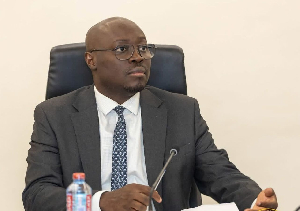The Dean of the Business School at the University of Cape Coast (UCC), Prof. John Gatsi, has said it is time for government to speed up efforts to increase the infrastructure to support the country’s gas production.
He said after some years of gas production, the country could not afford to re-inject large volumes of produced gas, hence the need to provide the infrastructure to effectively take custody and make use of the gas or to process for a variety derivative product, for value addition and for revenue generation.
Speaking in an interview on Wednesday, January 6, Prof. Gatsi noted that “it is tried knowledge that a country that goes into gas production needs to be ready with gas infrastructure processing plant.
“That is the duty of the owner of the gas, that’s the state. So, if you are not ready to put in place the needed infrastructure then it means it will cause problems to the implementation of your own laws,” he said.
He said “When you produce gas and use cannot make use of it or accommodate it / you do not have capacity then you are forced to go against your own laws to engage in flaring, venting of the gas.
PIAC report
Cumulative raw gas production increased significantly by 65 per cent; the highest recorded half-year volume of gas produced since 2010, the 2020 semi-annual report on the management and use of petroleum revenues by the Public Interest and Accountability Committee (PIAC), has revealed.
All the three producing fields, namely, Jubilee, Tweneboa Enyera Ntomme (TEN) and Sankofa Gye Nyame (SGN) recorded an increase in gas production, with the SGN Field recording a 130 per cent increase attributable to stable production operations.
A breakdown shows that the cumulative raw gas production for the first half of the year was 116,373.39 million standard cubic, representing a 65 per cent increase over the volume of 70,401.51 MMscf produced for the same period in 2019.
Gas production from the Jubilee and TEN Fields increased by 30 per cent each, whilst the SGN Field recorded a significant increase of about 130 per cent from a volume of 25,009.76 MMscf in half year 2019 to 57,451.67 MMscf for the same period in 2020.
Gas use
On alternative uses of gas outside power production, he said it could be processed into LPG, fertiliser production to feed the agriculture sector.
“The point that I am making is that you do not just begin to produce gas but you do so because you invest in hydrocarbons.
“And so, the investment should inform you that when the gas start coming you have a responsibility of receiving the gas in the kind of facility or infrastructure that is needed to accommodate,” he explained.
He said the country should not only invest in the production of gas by signing contract but must also invest in the appropriate infrastructure to ensure the good use of the gas.
Gas re-injection
Prof. Gatsi deduced that Tullow re-injects gas to properly position the production process.
“If you have the gas beyond the level and the state is not prepared to receive the gas in the appropriate infrastructure, the only opportunity left for the company is to follow the law and appropriately apply for the venting or re-injection of the gas.”
“So Tullow may not be doing anything against our laws, it’s our duty to prepare to receive the gas. If we are not ready for the receipt of the gas then the operator will have to protect its facilities, infrastructure and production process by doing what is required by law to do,” he said.
With regards to venting and flaring of gas, Prof. Gatsi said in some situations, companies were even supposed to do it under emergency, with the only requirement being that after the emergency, the companies report within a certain period to the commission.
“So, even though there are laws against flaring, it is not in vacuum, it is in the framework and the context that you are in a position to receive the gas. That is the basic principle we need to appreciate,” he said.
The report
The 2020 Semi-Annual Report is in fulfilment of the Committee’s statutory obligation under the Petroleum Revenue Management Act, 2011 (Act 815), as amended by Act 893, to publish semi-annual and annual reports.
This report is a reconciliation of data supplied by stakeholder institutions and an independent assessment of the collection, management and use of the country’s petroleum revenues for the period January –June 2020.
Recommendation
The Committee reiterated its earlier call on Parliament to strengthen its oversight mandate on the Ministry of Finance because of the ministry’s persistent failure (fourth time) to provide half-year data on the Annual Budget Fund Allocation (ABFA) utilisation is not only adversely affecting the work of the Committee but also eroding gains in the fight for transparency and accountability in the management and use of Ghana’s petroleum revenues for the benefit of citizens.
Business News of Wednesday, 20 January 2021
Source: goldstreetbusiness.com













